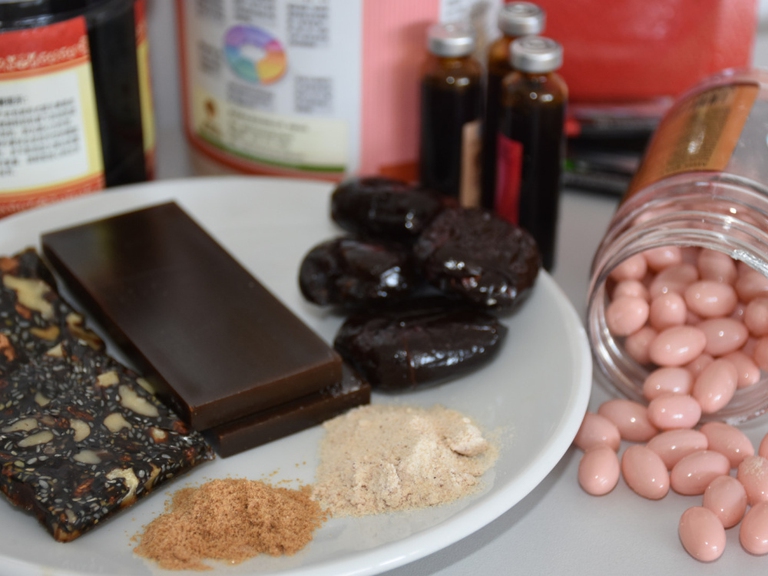https://www.lifegate.it/e-jiao-asini
- |
In China, since 2011, it has become increasingly popular a traditional medicine known as e-jiao which is obtained using collagen extracted from donkey skin and which is sold in the form of sweets, jellies, pills or powders to be diluted in drinks and which, according to consumers, prevents aging, enriches the blood And improves immune defenses.
E-jiao was initially a luxury product, used by the rulers of Qing dynasty who ruled the Chinese empire from 1644 to 1912, but in recent years the demand for donkey glue has increased a dizzying acceleration by China's growing middle class, especially after its use became popular through the television series "Empress in the Palace".

The production of e-jiao
The use of e-jiao is not just tradition or fashion, this cultural phenomenon and it also hides customs a dramatic reality, both with regards to animals, in this specific case animals donkeys who continue to be killed for the production of traditional medicine, but also with regards to living conditions of thousands of families who live in rural areas in Africa as they were forced to give up their donkey, a fundamental animal for the development of rural African communities, to meet the needs of the Chinese market.
To understand what is happening in China and also in Africa, first of all it is necessary to observe the data published by the British association that fights for animal welfare, The donkey sanctuary, which show how the e-jiao industry has provoked a massacre of donkeys in the Land of the Dragon and now, given the drastic decrease in equines in the Asian nation, it is getting its hands on the animals of Africa where it is concentrated the world's highest population of donkeys.
According to a relationship published in February by The donkey sanctuary, the e-jiao industry, the cost of which, according to Chinese state media, has increased thirty-fold in the last ten years, going from one hundred yuan per 500 grams to 2,986 yuan (420 dollars) , requires approximately 5.9 million donkey skins per year.Between 2013 and 2016 the annual production increased from 3,200 to 5,600 tonnes, from 2016 to 2021 it then increased by 160 percent and if the trends continue in this way it is believed that it will be possible to record an increase of two hundred percent by 2027.An impressive question whose unprecedented consequences turned out to be extreme and dramatic.In fact, the donkey population in China has dropped by over eighty percent, going from eleven million in 1992 to just under two million, and in Africa, where China now supplies itself with donkey skins, we are witnessing to a destruction of development systems, as Solomon Onyango from the Donkey Sanctuary in Kenya explained to the BBC:“Donkeys make the difference between poverty and a modest livelihood.”
Raphael Kinoti, regional director of the animal protection organization The Brooke, told the British broadcaster:“The slaughter of donkeys for their skin has eroded livelihoods in Africa, robbing the continent of its culture, biodiversity and identity.”
In Africa half of the global population of donkeys is concentrated and the donkey, in addition to being used for field work, is the most used means of transport when traveling from the most remote centres to the villages where the schools are located and even in extreme conditions the animal still manages to travel long distances with heavy loads.The donkey is therefore a necessary animal for the development of agricultural communities in Africa.
“Aside from donkey welfare and supply risks, the consequences for rural people in Africa are heartbreaking and contrary to development goals.”Ha explained to Reuters Lauren Johnston, expert on China-Africa relations.
The Chinese demand for donkey skins for the production of e-jao is upsetting Africa because in many contexts donkeys have not yet been replaced with motorized vehicles, therefore their removal from the communities of Ethiopia, Chad, Niger and of many other countries not only threatens development, but could also lead to a return to extreme poverty.Especially among women.
In the face of this emergency, the African Union in February banned the slaughter of donkeys for their skin across the continent and the news was initially welcomed with enthusiasm by animal rights and environmental groups.However, they remain many doubts and the fear is that the African Union declaration will not be followed by a real application of the ban by national governments.Furthermore, in recent years, China has looked to other countries from which to export donkey skins, specifically Pakistan and Afghanistan and the risk is that the massacre of donkeys, with the consequent critical issues for local communities, instead of being stopped, will only be delocalized.
